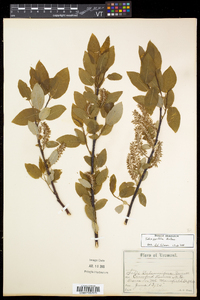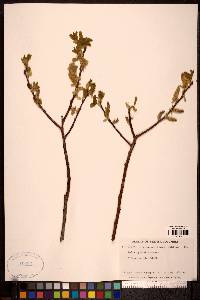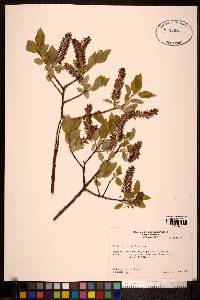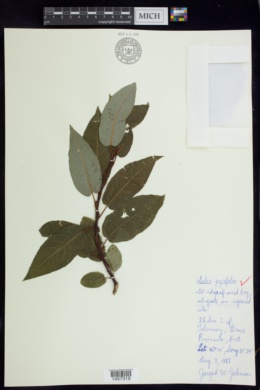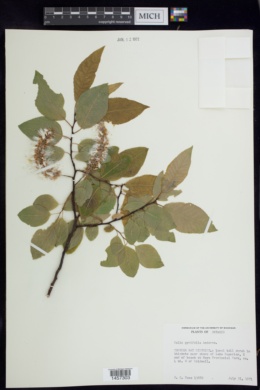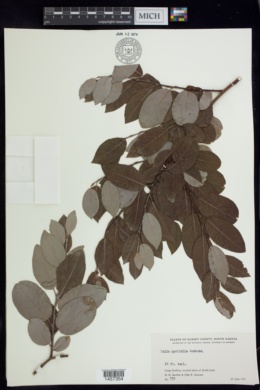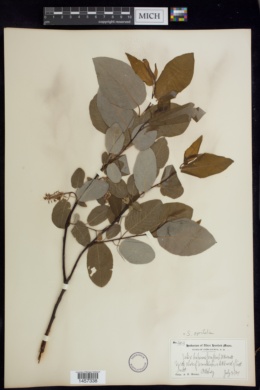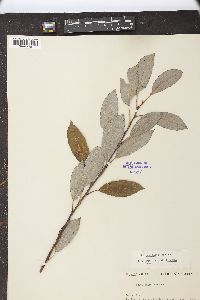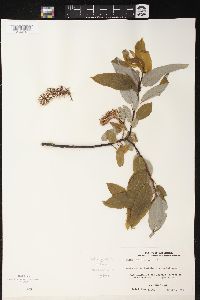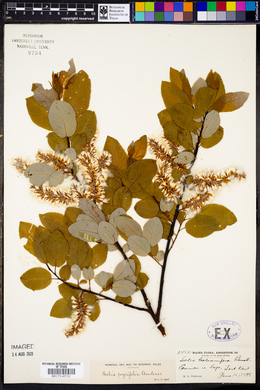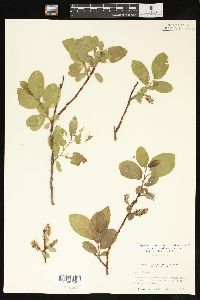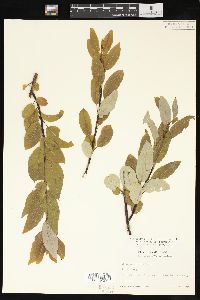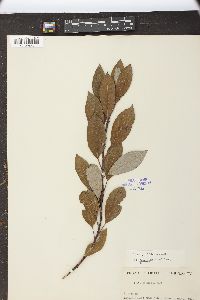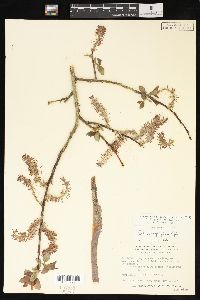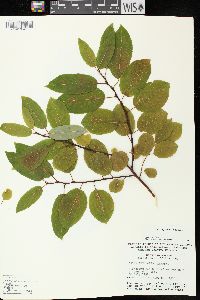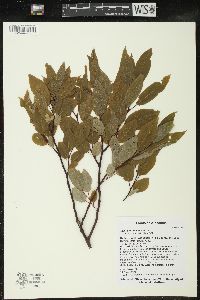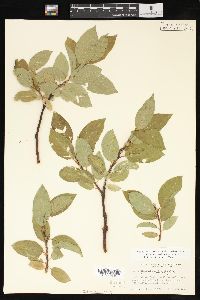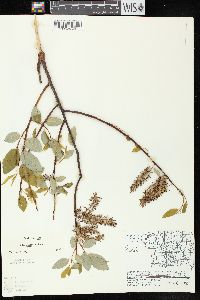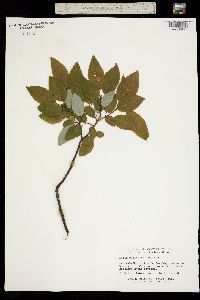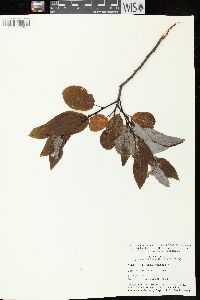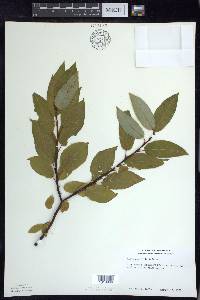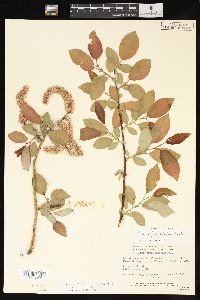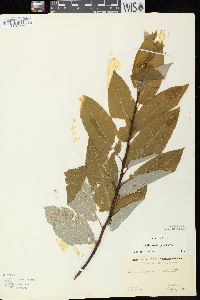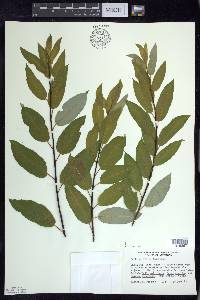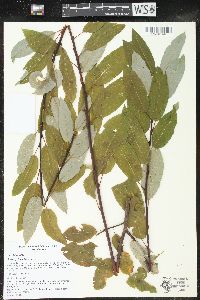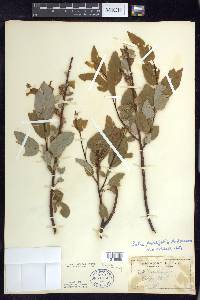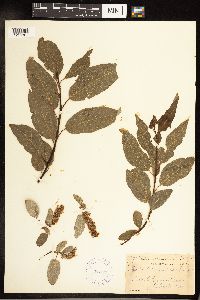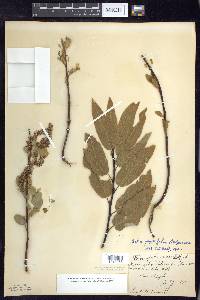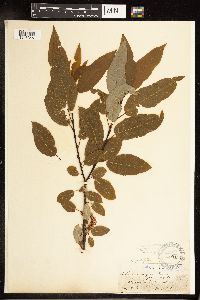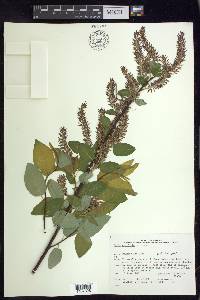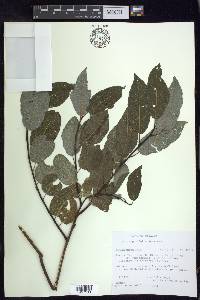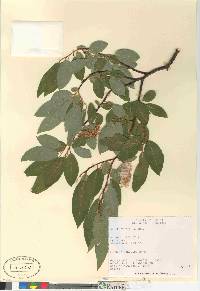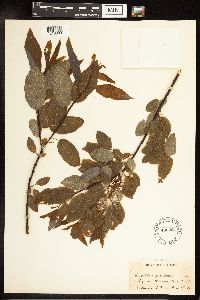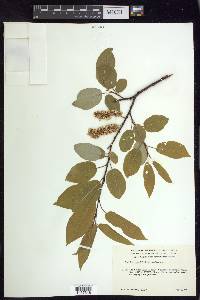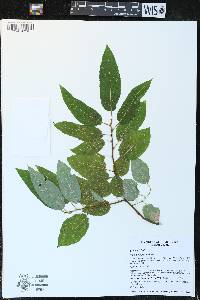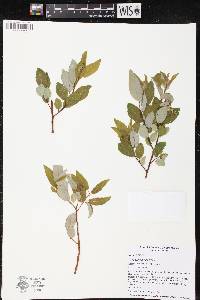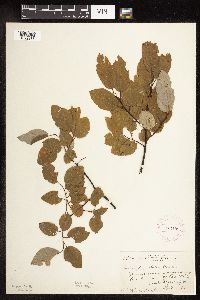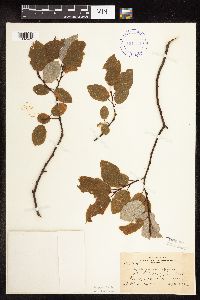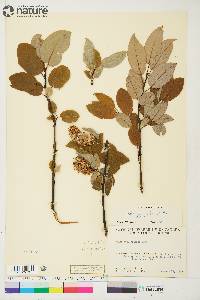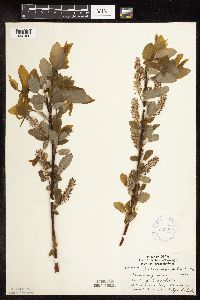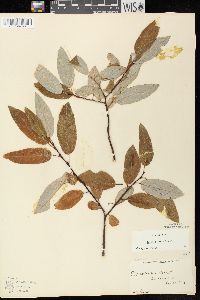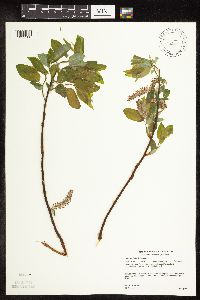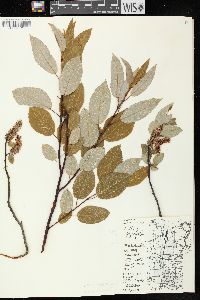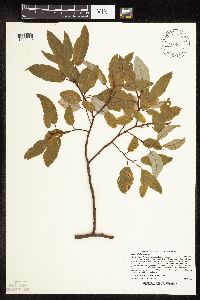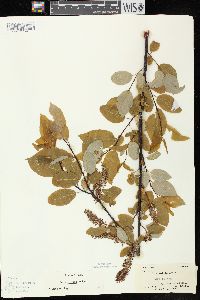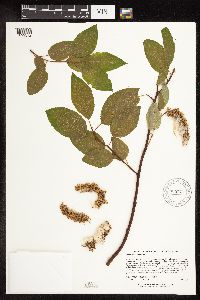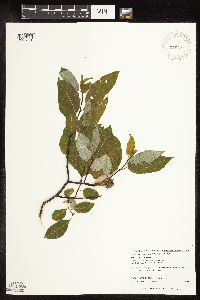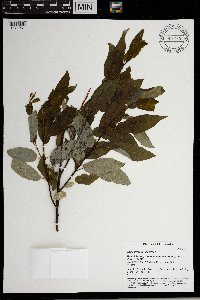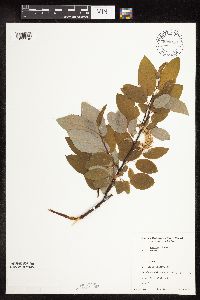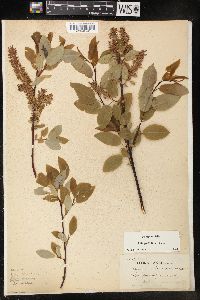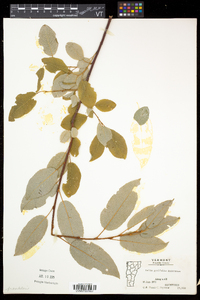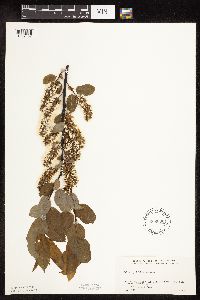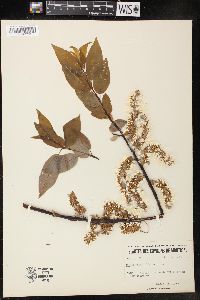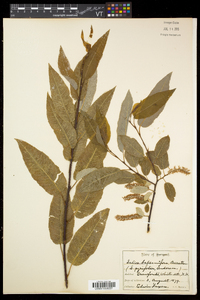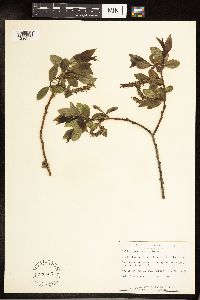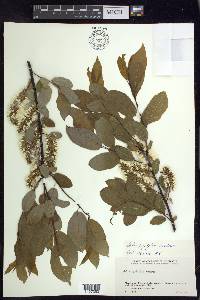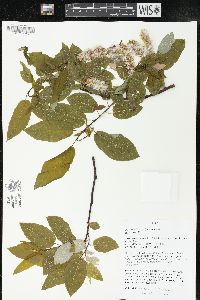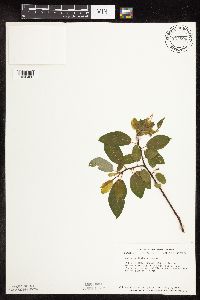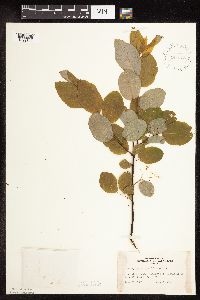
|
|
|
|
Family: Salicaceae
Balsam Willow
|
Plants 0.4-4 m. Stems: branches red-brown, not glaucous, (highly glossy), glabrous; branchlets red-brown, yellow-brown, or yellowish, (not or weakly glaucous), glabrous, (inner membranaceous bud-scale layer free, not separating from outer layer). Leaves: stipules (early deciduous), foliaceous or rudimentary on early ones, foliaceous on late ones, apex acute, convex, or rounded; petiole convex to flat, or shallowly grooved adaxially, 7-20 mm, glabrous or sparsely velvety adaxially; largest medial blade narrowly oblong, oblong, elliptic, or broadly elliptic, 30-103 × 19-40 mm, 1.5-3.4 times as long as wide, base cordate, subcordate, rounded or convex, margins flat or slightly revolute, serrulate, irregularly serrate, crenate, or sinuate, apex acute or acuminate, abaxial surface glaucous, glabrous, adaxial slightly or highly glossy, glabrous; proximal blade margins serrulate or entire; juvenile blade translucent, glabrous or pilose abaxially, hairs white. Catkins: staminate flowering just before leaves emerge, pistillate flowering as leaves emerge; staminate stout or slender, 18.5-63 × 7-15 mm, flowering branchlet 1-5 mm; pistillate loosely flowered, stout or slender, 25-85 × 8-20 mm, flowering branchlet 2-22 mm; floral bract tawny, 1-2.4 mm, apex acute or convex, abaxially sparsely to moderately densely hairy, hairs straight or wavy. Staminate flowers: adaxial nectary square or ovate, 0.3-0.5 mm; filaments distinct, glabrous or sparsely hairy basally; anthers yellow, (ellipsoid or shortly cylindrical), 0.5-0.8 mm. Pistillate flowers: adaxial nectary narrowly ovate or square, 0.3-0.7 mm, shorter than stipe; stipe 1.8-3.5 mm; ovary obclavate, glabrous, beak slightly bulged below styles; ovules 10-19 per ovary; styles 0.4-0.5 mm; stigmas flat, abaxially non-papillate with rounded tip, or 2 plump lobes, 0.2-0.23-0.32 mm. Capsules 7-8 mm. 2n = 38. Flowering May-mid Jun(-mid Jul in subalpine). Fens, wet lake and slough margins, treed bogs; 0-300 m (-1600 m in subalpine); Alta., B.C., Man., N.B., Nfld. and Labr., N.W.T., N.S., Ont., P.E.I., Que., Sask., Yukon; Maine, Mich., Minn., N.H., N.Y., Vt., Wis. Salix pyrifolia is characterized by juvenile leaves membranaceous and translucent, and largest medial leaves subcoriaceous, with abaxial surfaces reticulate, and with bases often cordate. Buds and foliage are reported to have a balsam-like fragrance. Hybrids: Salix pyrifolia forms natural hybrids with S. brachycarpa var. psammophila. Hybrids with S. discolor have been reported (C. K. Schneider 1921; M. L. Fernald 1950) but no convincing specimens have been seen.
Shrub to 5 m, occasionally arborescent; twigs glabrous, at first yellowish, becoming red and shining; bud-scale 2-8 mm, red; stipules wanting, or ovate and 1-2 mm; petioles 0.8-2 cm; lvs reddish while unfolding, thin and translucent at first, ovate to lanceolate or lance-oblong, 4-10(-13) נ2-4(-5) cm, acute to abruptly acuminate, crenate-serrate with often glandular teeth, rounded to cordate at base, deep green above, glaucous and finely reticulate beneath, glabrous, with a balsamic fragrance; catkins with or after the lvs, 2-6(-8) cm, lax, the staminate on bracteate peduncles 2-8 mm, the pistillate on leafy peduncles 1-3 cm; scales 2-2.5 mm, reddish-brown, white-villous, becoming glabrate outside; stamens 2; frs lanceolate-rostrate, 6-8 mm, glabrous; pedicels 2.5-3.5 mm; style 0.3-0.5 mm; 2n=38. Moist or wet or swampy ground; Lab. and Que. to B.C., s. to N.S., n. N. Engl., n. N.Y., and n. Minn. Fls mid-May-Aug. (S. balsamifera) Gleason, Henry A. & Cronquist, Arthur J. 1991. Manual of vascular plants of northeastern United States and adjacent Canada. lxxv + 910 pp. ©The New York Botanical Garden. All rights reserved. Used by permission. |
This project was made possible in part by the Institute of Museum and Library Services [MG-70-19-0057-19].
Powered by Symbiota

